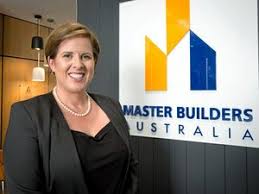
TRANSFER PRICING >>
Face it, business in Australia has rarely been about playing on level fields. The juggernauts of the big four banks and the supermarket duopoly, that run right over the top of enterprising small and medium businesses in Australia, seem manageable in comparison with the diabolical genius of the (mostly) multi-national organisations who ‘transfer price’ tens of billions of dollars out of the Australian economy. By doing so, they profit from all tax paying Australians.
IT IS DIABOLICAL that two generations of Federal Governments have, at best, miscalculated the scourge of transfer pricing. At worst, Federal Government taxation and trade policy has been blindsided by a problem partly of its own design.
Transfer pricing – the dark art of manipulating money flows so that little or no profit is taxed in the country in which that profit is generated – is alive and diabolically well in Australia. It has been turbocharged by digital transformation and new-era companies that are internet-central in operations.
One example is American Express, a company reported by Fairfax Media last year to have not paid tax on profits in Australia for more than seven years.
It is an example of how the key to minimising tax among these internet-centric companies is to be headquartered – and conduct billing – out of a low tax jurisdiction. One particularly popular low-tax jurisdiction for the Australian market is Singapore – used by multi-nationals such as American Express and several major oil companies. That’s right, Australian American Express financial payments are directed to Singapore.
If you were sceptical, you would wonder what the real advantage to Australia could possibly be from linking our petrol prices to the Singapore and Tapis crude oil markets, for the oil refined in this country. The issues of what happens to prices – and transfer pricing of oil profits – as Australian refineries steadily close and are modified as storage depots (which has happened recently at the giant Botany Bay site) are disturbing to consider both economically and in terms of national security.
The most emotive transfer pricing outcry example in Australia right now concerns ride share group Uber, which has not only disrupted thousands of family taxi companies day-to-day, but for some it has helped bring about their rapid financial demise.
In Queensland, where the State Government was selling operating licences for up to $500,000 just a few years ago and still legislates taxi fares and charges, the impact of Uber and other ride-share companies has seen those licences become comparatively worthless.
Many owners who planned to use the value of their (often multiple) licences as ‘superannuation’ will instead only receive a $20,000 compensation from the Queensland Government – per licence and for a maximum of two licences. This is a regulated industry that has been totally transparent for decades and been forced to pay its fees and taxes accordingly. Its devastation will have a corresponding effect on taxable incomes of those (largely) family businesses.
Some family taxi businesses in Queensland have reported to ABC Brisbane talkback radio host Steve Austin that they are most likely headed for bankruptcy – and some have already lost their family homes.
Uber, created in San Francisco, has effectively been domiciled in the Netherlands (a low tax jurisdiction that has, in the past, been utilised by former Australian companies such as James Hardie) since 2013 according to Forbes magazine and – most likely, but it is opaque – pays tax on its global profits there. Uber bills Australians from the Netherlands and the driver’s share, usually about 75 percent of the fare, is repatriated back to the driver’s Australian account.
This means that about 25 percent of each ride share fare that goes to Uber remains in the Netherlands and therefore is not subject to profits tax in Australia. The driver is responsible for their own tax affairs.
How much of that 25 percent ride income actually is profit is irrelevant as is it ‘earned’ offshore, beyond the ATO’s jurisdiction. The Australian Government certainly does not know. It has no way of knowing what ‘profit’ Uber has actually earned in Australia, based on current legislation, because it is regarded as being Australian dollars earned in the Netherlands
Not so long ago, a process like Uber’s would have been regarded as an ‘import’ of a product or service. Today it is being treated like an export, where GST is also being argued by Uber as not being applicable.
Yes, these are customers in Australia being serviced by an Australia-based tax-paying driver in a vehicle sold and maintained in Australia, on Australian roads paid for by Australian taxpayers. So, while about 75 percent of the fare generated ends up being taxable in Australia the other 25 percent of this service definitely happened in cyberspace, so there’s no taxable income on that component.
The Australian Government is nodding its head remorsefully that this is the case, for now at least. Thankfully, they have refused to keep nodding in the case of ride share services avoiding GST – that’s Goods and SERVICES Tax, for those in the government who may have overlooked the entire acronym – although Uber is again contesting this through the courts.
Yet, in Uber’s case and others, what seems a straightforward case of transfer pricing ‘sleight-of-hand’ is actually complicated by a whole range of international trade conventions and agreements entered into by the Australian Government as part of its free trade mantra over the past 30 years.
In practical terms, you cannot blame Uber, or other multi-nationals, for playing the game their way, on the playing field Australia has cultivated.
TPP: TRANSFER PRICING PARTNERSHIP?
Uber is a highly visible example right now of the problems facing Australian taxation revenues – but there are many, many more flying well under the radar.
In fact, as Australian business at large comes to understand the insidious workings of transfer pricing, it could help to alert the Australian Government to similar threats.
One potential threat may ironically have been averted by the election of Donald Trump as President of the United States: the Trans Pacific Partnership (TPP).
The TPP on the surface would seem to be a very progressive agreement, effectively establishing a free trade zone around much of the Pacific Rim – although the way it had excluded China was questionable.
Countries involved in the TPP were the United States (under President Barack Obama) Australia, New Zealand, Malaysia, Vietnam, Singapore, Brunei, Canada, Mexico, Chile and Peru. Together, they contributed about 40 percent of the world’s annual economic output.
Australia has been instrumental in TPP negotiations, most recently through Foreign Minister Julie Bishop. Australian business in general seemed to be too busy to bother to get its head around details on the TPP, and paled to insignificance against the contributions and lobbying of the big US multi-nationals.
Some concerns that emerged included fears that US multi-nationals would have the ‘right’ to challenge and possibly sue governments whose legislation changes negatively impacted their business in that country.
The flashpoint on this issue in Australia was likely to be pharmaceuticals. It was argued by some sectors that the TPP would promote complaints and financial claims by US drug companies in issues such as the availability of generic competition under Australia’s Pharmaceutical Benefits Scheme (PBS).
But among the accounting and legal organisations who manage transfer pricing for international companies – and in the main this is a complicated and legitimate practice for these multi-nationals – there has certainly been an undercurrent of a re-focus on transfer pricing under the proposed TPP.
For example, a report from The International Tax Policy Forum suggested “potential tax effects from the Trans-Pacific Partnership to highlight the link between aggressive upstream transfer pricing and downstream earnings stripping”.
Indeed, BDO Australia’s Transfer Pricing Practice is happy to point out that it “helps groups navigate this fast changing transfer pricing environment”. BDO’s online promotion for its expertise in the field says: “Aided by dedicated transfer pricing practitioners around the BDO network, we provide a range of planning, compliance, audit defence and benchmarking services. We can work with you to develop transfer pricing policies that are defensible, flexible and in line with your overall tax planning strategies.”
Nothing wrong with that. In fact, under the current rules of the game in Australia, companies would be crazy if they didn’t use transfer pricing to keep more of their profits.
The moral dilemma is that the same advantages are not available to most Australian businesses – who want to stay domiciled here – and the Federal Government has lately been coming down hard on companies that even look as if they may be re-structuring into international entities.
Of course, you could simply leave Australia and sell back to it, or set up your new Australian subsidiary from the Netherlands or Ireland … as former local iconic companies including James Hardie and BHP (now BHP Billiton) have done.
Such arrangements can work really well, unless that loan from head office to the Australian entity, which has to be repaid at levels remarkably similar to the levels of potential profit made in Australia, is called by the ATO for not being ‘at arms length’.
Of similar ilk is the ATO’s $1.01 billion tax and penalty claim against BHP Billiton – which is being vigorously contested – at the moment targetting the Big Australian’s Singapore marketing base operations, which primarily conducts iron ore sales around the globe and enjoys a mark-up for doing so.
The dilemma for Australian tax authorities is that the iron ore has been bought in Australia by BHP Billiton’s Singapore marketing entity for a much lower price than it has been then sold to, say, Japanese and Chinese steel mills. It used to be a ‘clean’ transaction, in which overseas steel mills would buy direct from Australia. That’s what has the ATO miffed and seeking to tax the money in the middle.
BHP Billiton argues forcefully that it is operating with the law and is conducting its sales and marketing operations fairly. Rio Tinto, which has a similar Singapore marketing hub set-up, argues the same. What is for certain is that this is going to be a long drawn-out argument.
RUBBERY UNDER ARMS LENGTH
It was all so much simpler just a few decades ago when some of Australia’s big name organisations managed their transfer pricing – or as it was called back then, ‘profit shifting’— closer to home.
Back then, the game was about shifting profits offshore through a web of trusts and companies – sometimes based in the South Pacific, Asia or Europe – in a way that supposed they could not be found. But money was not so easily moved back then through ‘telegraphic transfers’, without today’s internet-fuelled secure financial transfer systems.
Some of Australia’s most successful companies and wealthiest families, who utilised this ‘offshore’ method, have since transitioned into much more savvy structures, often with the help of the Big Four accountancy firms and modern secure internet communications
It was often rumoured about time of the ATO’s Operation Wickenby, which started in the 1990s, that the web of offshore trusts and hidden offshore bank accounts that many Australian business moguls had would be exposed – and they would then be forced” to pay their fair share of tax” in Australia.
Take sharemarket guru the late Rene Rivkin, for example, who has since been shown to have secured his wealth in ‘untouchable’ Swiss banks and financial structures.
It’s a sentiment not dissimilar to what we hear today with regard to transfer pricing.
But it’s not really how it worked out, is it?
The original ‘offshore’ system was simple and so well known in accounting fraternities that it beggared belief that the ATO was not all over it. The owners of an Australian company would use local accountants to establish companies in a tax haven such as the British Virgin Islands. Often this was done through an intermediary marketer of such companies in a jurisdiction with strong financial services capability – say, Hong Kong, Singapore or Cyprus.
One such ‘deep cover’ company or trust would own another would own another, so that the secrecy of ownership increased layer by layer. Then the Australian company would take ‘loans’ from overseas ‘investor’ entities … which would have to be paid back at remarkably fluid levels of interest, of course.
It was ironic how these structures would almost invariably produce a result in which there was precious little profit to be taxed in Australia …
The end result, then as now, is that the gulf left by these transferred profits ends up being burdened upon income tax payers and small-and-medium enterprises.
Today, it’s a much more open card game in which one arm of a multi-national organisation simply bills another and another. All within the existing house rules.
The deck is stacked against the Australian Government as it shuffles around in court with the multi-nationals, their Big Four accountancy firm transfer pricing advisors and their combined armies of lawyers.
ends


 How to resolve AdBlock issue?
How to resolve AdBlock issue? 




